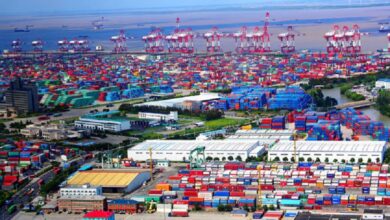WTO, Others Launch Online Alert System “ePing” For MSMEs

The World Trade Organisation (WTO) in collaboration with the United Nations Department of Economic and Social Affairs (DESA), the WTO and the International Trade Centre (ITC) to help Micro, Small and Medium-sized Enterprises (MSMEs) across the world,
An improved version of the online alert system ePing which was launched on Wednesday, July 13, 2022 would provide a single-entry point for users to submit and track information on product requirements while enhancing coordination among government agencies and the private sector.
The new ePing SPS & TBT Platform would also facilitate the tracking of sanitary and phytosanitary (SPS) and technical barriers to trade (TBT) measures, making it easier for users to notify and follow changes in product requirements.
The new system was launched in the margins of the meeting of the Technical Barriers to Trade (TBT) Committee at the WTO. It builds on the previous version of ePing, which was launched in November 2016, merging several TBT and SPS online tools. Moreover, several ePing services will soon be available on a phone application to facilitate the dissemination of notifications.
The platform brings together all stakeholders involved in the process of notifying, consulting and coordinating on product requirements at the national and international level.
The new ePing makes it easy for businesses, particularly micro, small and medium-sized enterprises, to track a specific sector or market through filtering options and offers several communication features to share information on and discuss notified measures.
WTO members are required to update each other when planning new or amended product requirements for goods entering their markets. In 2021, almost 6,000 notifications on updated or new regulations were submitted to the WTO.
The value of this new online tool is in its dissemination as information is key for helping businesses adapt to the new requirements, encouraging coordination among members, and bringing about better regulation.
Speaking at the launch held during the TBT Committee meeting week, Ms Maria-Francesca Spatolisano, Assistant Secretary-General of the United Nations, via video message, highlighted the importance of ePing for developing and least developed countries.
She stressed that prior to ePing, stakeholders in the public and private sectors did not have effective and timely access to critical information on product requirements and export markets.
In addition to supporting this new streamlined ePing website, UNDESA is further enhancing the system with the development of an ePing smartphone app that will soon be available.
Ms Spatolisano said, UNDESA was proud to be part of the ePing partnership with ITC and the WTO, citing this collaboration as an excellent example of inter-agency cooperation in support of developing countries.
Ms Dorothy Tembo, ITC Deputy Executive Director, emphasized how ePing can provide support for small businesses facing hurdles to import or export.
“Companies struggle to make sense of the multitude of health and safety requirements, product regulations, testing and certification procedures and other measures necessary to reach international markets,” she said.
According to ITC business surveys conducted in more than 70 countries, half of business trade obstacles are related to SPS and TBT measures.
“These obstacles are challenging. That’s why we set up ePing to provide up-to-date information that businesses need to stay informed and thereby reduce obstacles to trade,” Ms Tembo declared.
Mr Jean-Marie Paugam, Deputy Director-General of the WTO, highlighted the importance of ePing in making crucial trade information available.
He said: “Transparency is the founding pillar of global trade. Businesses, governments and traders want early alerts and better information on changing product requirements in one place. Now, they have it with the new ePing platform. It provides access to critical information on product requirements impacting their exports.”






